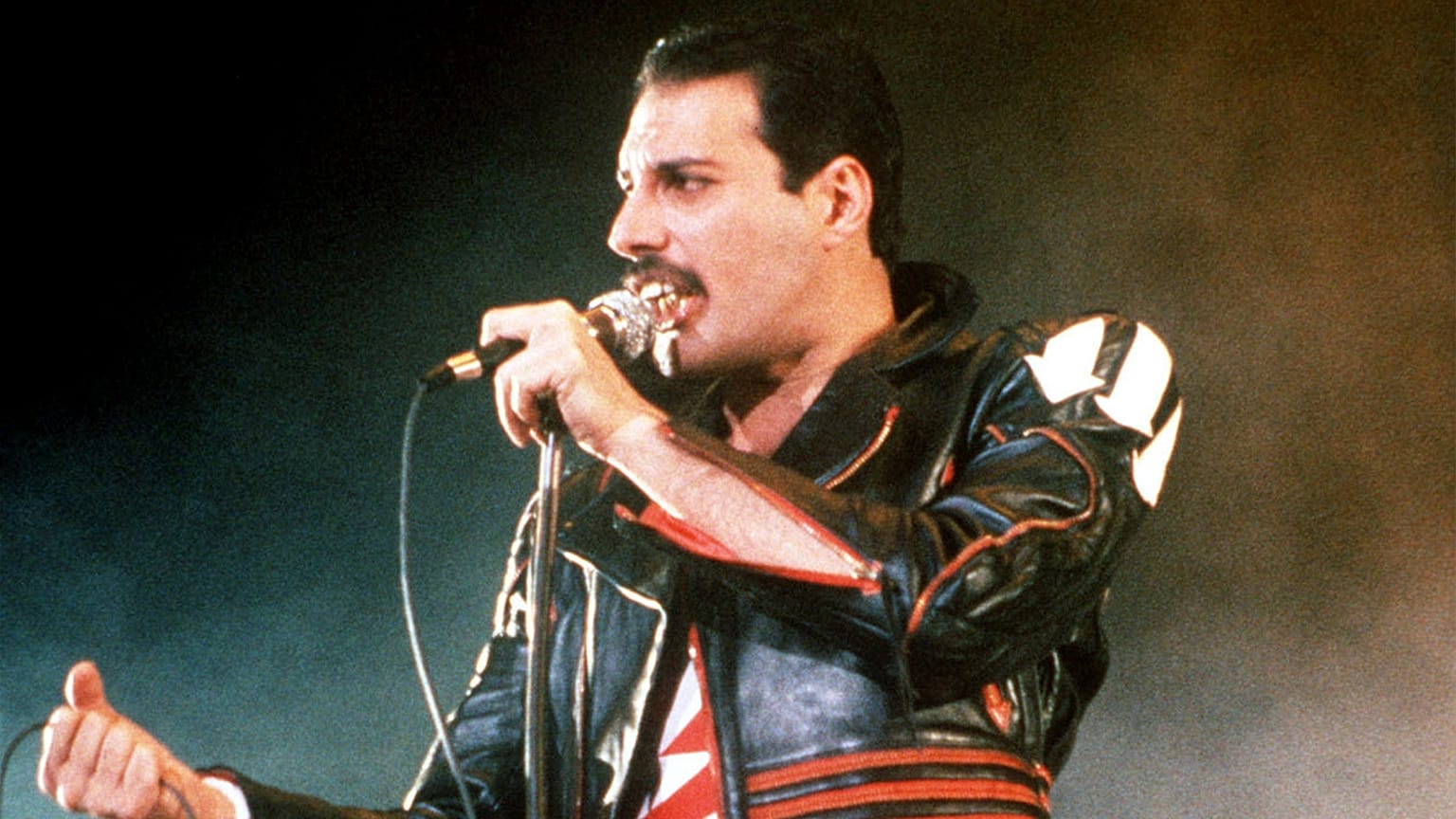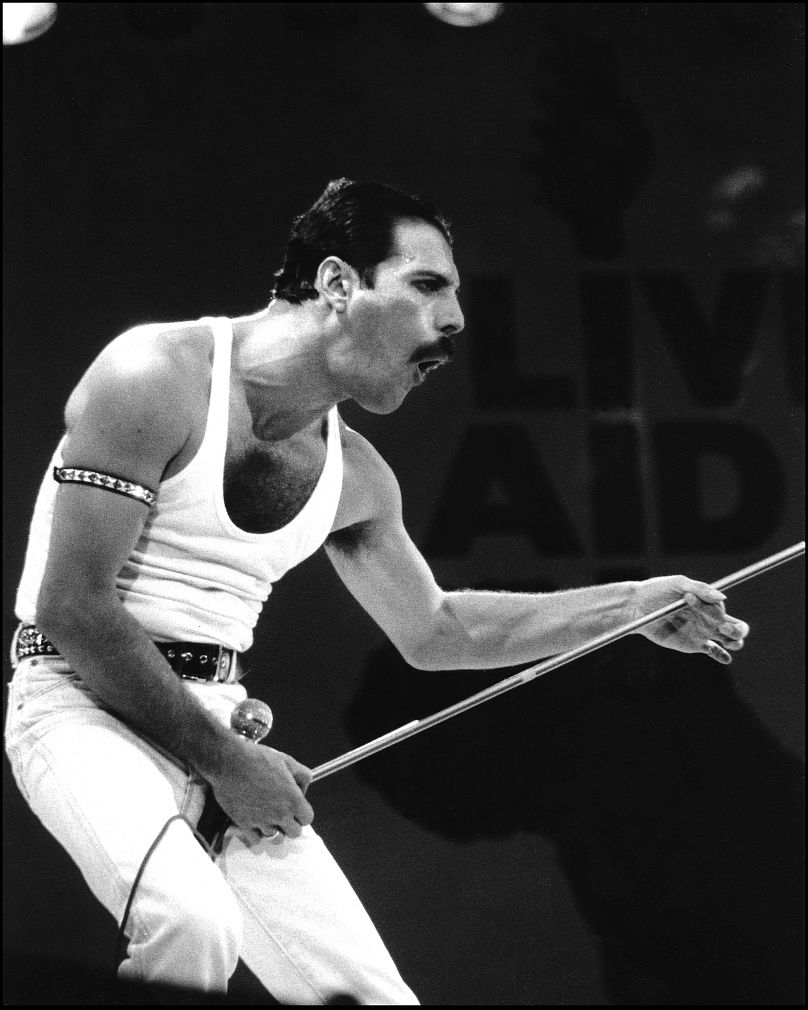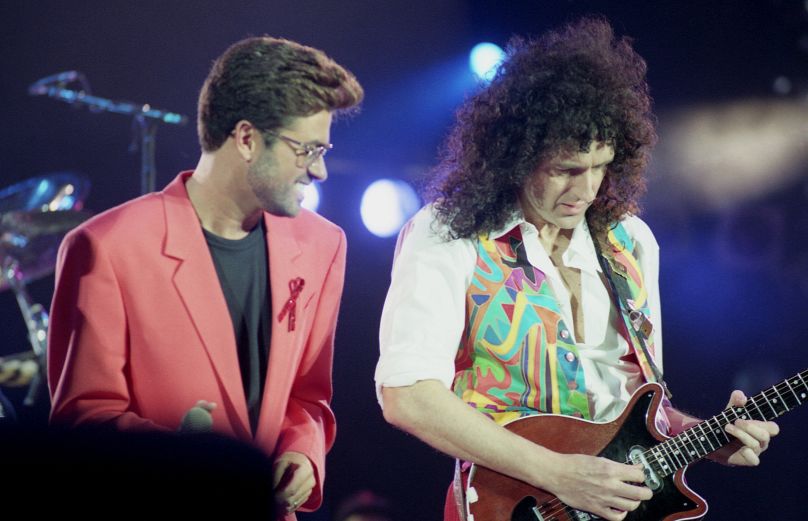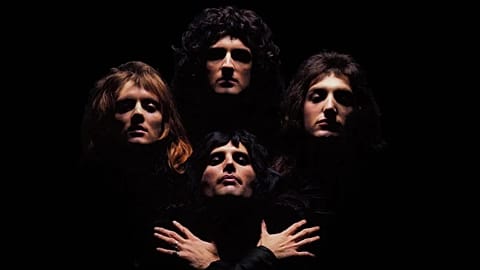24 November 1991: Freddie Mercury dies.
On this day in 1991, Freddie Mercury died of bronchial pneumonia, a complication resulting from AIDS. At the time of his death, Mercury was the most famous person to succumb to the deadly disease.
 ADVERTISEMENT
ADVERTISEMENT
 ADVERTISEMENT
ADVERTISEMENT
The impact of Mercury and his band Queen have been long discussed. Their influence on the glam-rock genre through cabaret-fuelled space-age albums and Mercury’s outsized on-stage persona is given.
One of Mercury’s greatest legacies comes through the circumstances of his death. At a time when the media was punishingly cruel to gay men suffering through the HIV/AIDS pandemic, Mercury’s death signified a shift in public perception of the disease.
Mercury first showed symptoms of HIV/AIDS in 1982 but wasn’t officially diagnosed until 1987. In the four years after his diagnosis, his health deteriorated until he had to step away from performing with Queen. His last public performance was at the 1990 Brit Awards and his final appearance in a music video was for the filming of ‘These Are the Days of Our Lives’ in May 1991. After June 1991, Mercury returned to his home in Kensington where he stayed until his death on 24 November.
During his life, media speculation was common as to Mercury’s sexuality due to his larger-than-life camp persona. He never confirmed nor denied anything – a move that was in-keeping with his general interviewee reticence. As he began to appear weaker due to the disease, and thanks to invasive reporting, press rumours also grew of Mercury’s condition.
Throughout his life, Mercury never chose to publicly come out with either his sexuality or his diagnosis. That was until 22 November when he arranged to make a statement.
“Following the enormous conjecture in the press over the last two weeks, I wish to confirm that I have been tested HIV positive and have AIDS. I felt it correct to keep this information private to date to protect the privacy of those around me. However, the time has come now for my friends and fans around the world to know the truth and I hope that everyone will join with me, my doctors and all those worldwide in the fight against this terrible disease. My privacy has always been very special to me and I am famous for my lack of interviews. Please understand this policy will continue.”
The statement was released on 23 November, just a day before he died.
Despite the information only being officially known for the final day of his life, Mercury’s death was a watershed moment in how Britain saw the disease that was tearing apart the gay community to little sympathy from mainstream news or politics.
Much like when Princess Diana opened the UK’s first specialist HIV/AIDS unit at London’s Middlesex Hospital in 1987, Mercury brought the topic into a context of the straight world.
Following his death, the wall of his home at Garden Lodge in Logan Place, Kensington became a shrine to the rockstar. ‘Bohemian Rhapsody’ was rereleased and went to #1 in the charts.
On 20 April 1992, the remaining Queen members played The Freddie Mercury Tribute Concert for AIDS Awareness at London’s Wembley Stadium. An audience of 72,000 people came to see a jam-packed show with legends like Elton John, David Bowie, George Michael, Led Zeppelin’s Robert Plant, The Who’s Roger Daltrey, Annie Lennox, and many more.
The concert was broadcast worldwide and coincided with the creation of the Mercury Phoenix Trust, a charity that fights HIV/AIDS worldwide.
In a wild and wonderful life, his tragic final act still had the power to change the way the world saw people suffering – a deserving legacy of one of the greatest rockstars to have ever lived.



















